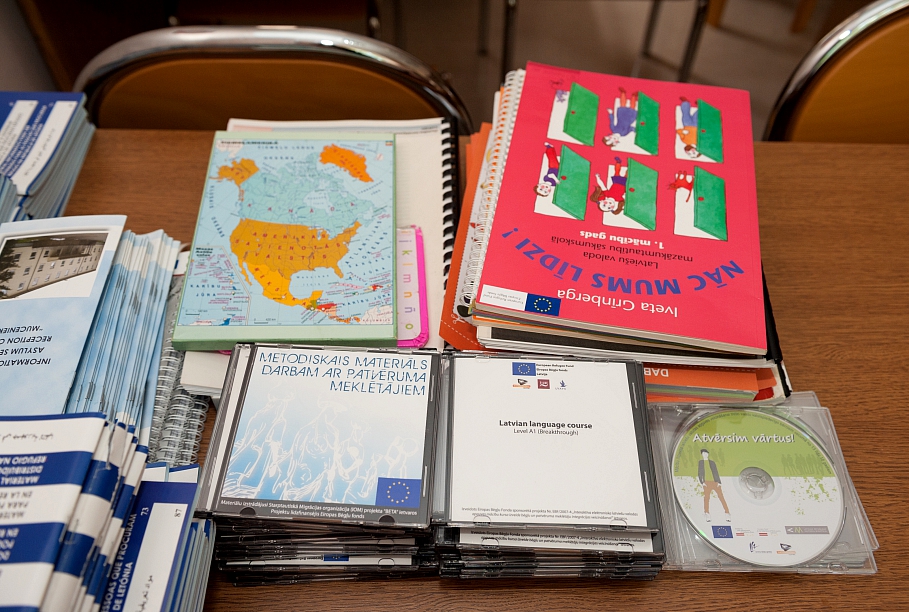"What food do you like? What do you like? What do you love?" - the teacher asks to the Latvian-language class at the Mucenieki refugee center. "I like pasta, I love you, I like Latvia," replies one of the students. The teacher looks flattered, then promptly moves to the next student.
Cooking, sleeping and learning Latvian are the only things asylum seekers can do in the Mucenieki refugee center. Of the 100 people at the refugee center, 60 are attending Latvian lessons, while the rest in all likelihood don't see a future here.
Teaching refugees Latvian is challenging for the teachers, who only speak Latvian during class.
"Because obviously we don't know Persian, Farsi or Arabic for that matter. We talk as if we would with a small child, like a mother would speak [..], if we're talking about analphabetic people who [also] don't know Russian, English or any other language," said Ērika Pičukāne, an educator at the Latvian Language Agency.
Lessons take place in groups of six to twelve. Mostly people from Iraq and Afghanistan are learning Latvian, and a few are from Congo and Syria. There are two groups for children.
"A Latvian-language teacher working with refugees and asylum seekers often takes upon the role of a psychologist and a motivator and an inspiring figure perhaps. And then, truthfully, they have stars in their eyes and they attend the lessons and study," said Liene Valdmane, an asylum seeker pedagogue.
There are also some people who don't have any learning experience, and they pose the greatest challenge, so for example they don't know how to take multiple-choice tests. "And that is the greatest challenge, to put yourself in this person's shoes, and to discover what is it that they don't understand," said Valdmane.
Children are the quickest to pick up the language, and they subsequently teach it to their mothers and fathers, concluded the story.





























